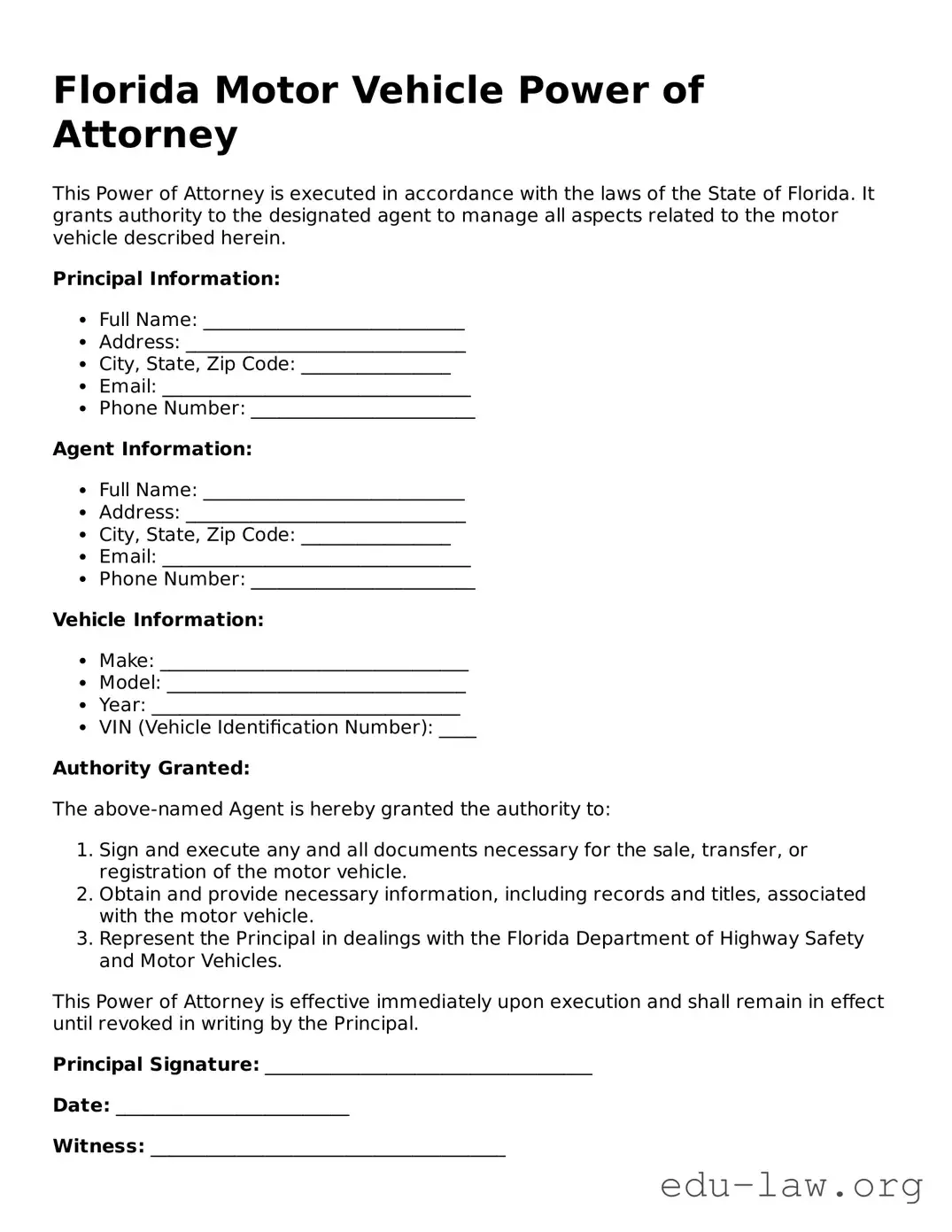What is a Florida Motor Vehicle Power of Attorney form?
A Florida Motor Vehicle Power of Attorney form is a legal document that allows one person to grant another person the authority to act on their behalf concerning matters related to motor vehicles. This includes the ability to sign necessary documents, transfer ownership, and manage vehicle registration and title issues.
Who can serve as an agent under this form?
Any individual who is at least 18 years old can act as an agent, also known as an attorney-in-fact. You may choose a trusted friend, family member, or an attorney. It's important that the person you choose understands your wishes and can handle the responsibilities associated with the vehicle transactions.
Do I need to notarize the form?
Yes, the Florida Motor Vehicle Power of Attorney form requires notarization. This step ensures that the document is legally valid and that the identities of the signers are verified. A notary public will witness your signature and provide their seal on the document.
Can I revoke the power of attorney once it’s been granted?
Yes, you can revoke a power of attorney at any time, as long as you are mentally competent. To do so, you should provide a written revocation notice to your agent and any relevant institutions, such as the Department of Motor Vehicles, if they were informed of your initial power of attorney.
What specific powers can I grant with this form?
You can grant your agent various powers, including but not limited to: signing over the title of a vehicle, applying for registration, obtaining a duplicate title, and completing any other necessary transactions related to motor vehicles. Be clear about the powers you want to bestow, as this will help avoid misunderstandings later.
Is there a specific format I need to follow for the form?
The form must follow Florida state guidelines to be considered valid. It's best to use a form that is specifically designed for this purpose. Ensure all sections are completed accurately, including the names of both the principal (you) and the agent, as well as the vehicle information.
Can this power of attorney be used for multiple vehicles?
Yes, a Florida Motor Vehicle Power of Attorney can cover multiple vehicles. You will need to list each vehicle with its corresponding details, such as make, model, year, and Vehicle Identification Number (VIN), in the form. This ensures clarity for transactions involving more than one vehicle.
How long is the power of attorney valid?
The duration of the power of attorney can vary based on the terms you set in the document. If you do not specify an expiration date, the power of attorney will remain in effect until you choose to revoke it or until your principal powers become invalid due to your demise or mental incapacitation.
What should I do with the completed form?
Once completed and notarized, provide a copy of the form to your agent and keep the original in a safe place. Additionally, it may be beneficial to give copies to any institutions or agencies that may require proof of this power of attorney, such as the Florida Department of Highway Safety and Motor Vehicles.
Is it necessary to consult a lawyer before completing this form?
While it's not strictly necessary to consult a lawyer, doing so can be beneficial. A legal professional can provide personalized advice based on your specific situation and ensure that the document meets all legal requirements. If you feel uncertain at any point, seeking legal guidance is a practical choice.
